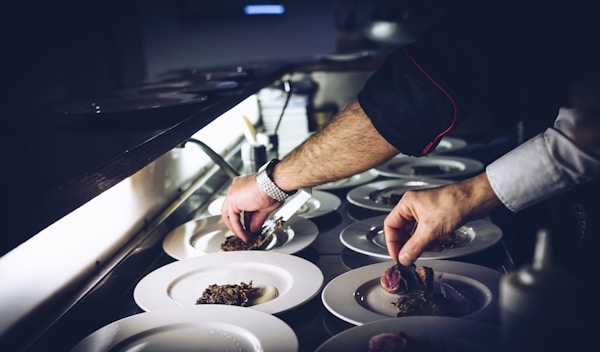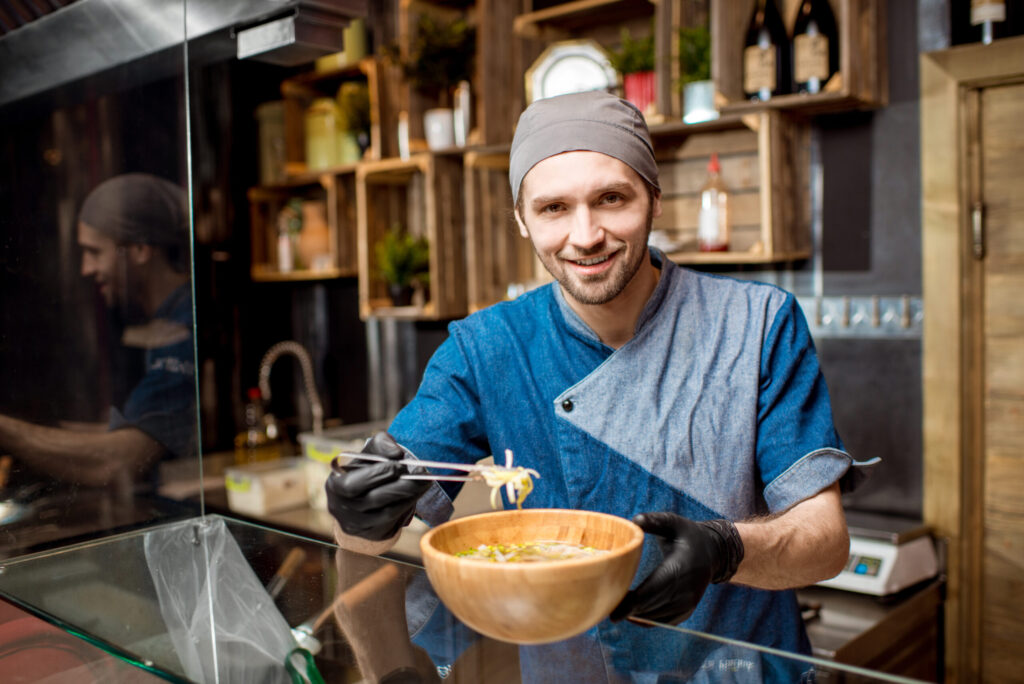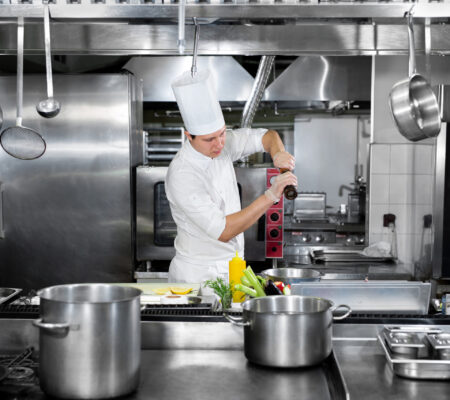Running a restaurant is an exciting and challenging endeavor, requiring passion, determination, and the ability to wear multiple hats. From managing day-to-day operations to strategizing for long-term success, there is a wide range of skills and expertise needed to manage a successful restaurant. Below, we explore the key elements of running a successful restaurant, including education, planning and management, attracting customers, and fire safety assurance.
Education and Training

A solid foundation in the culinary arts is essential for anyone looking to run a successful restaurant. Having formal culinary training not only helps to hone your cooking skills, but also provides valuable insights into food safety, nutrition, menu planning, and more. Look for reputable culinary schools in Los Angeles or other major cities to find the right program that will help prepare you for the challenges of being a restaurant owner.
Additionally, it’s essential to invest in ongoing education for your entire staff. Be sure that your team is well-trained in a diverse range of skills, including food safety, customer service, and accurate order-taking. Providing ongoing professional development opportunities will help to ensure that your staff is always on top of the latest trends and best practices in the industry.
Lastly, don’t forget about the importance of business skills. Running a restaurant involves much more than just cooking great food – you also need to be a savvy entrepreneur, skilled in areas like marketing, finance, and operations. Consider taking business courses or partnering with an experienced mentor to help you develop these crucial skills.
Ensuring Safety and Compliance
Keeping your restaurant in compliance with regulations and ensuring the safety of customers and staff should be top priorities for every restaurant owner. Proper training in food safety, sanitation protocols, and equipment maintenance are essential to protect your diners and employees from potential hazards. Invest in regular inspections, certifications, and meeting local health department requirements.
Fire safety is another critical component of running a safe and compliant restaurant. A partnership with a reputable fire safety company, such as First Quality Fire, can help to ensure that your space is adequately protected with the proper equipment and systems in place. Regular training in fire safety and emergency preparedness for your staff is also crucial to promote a secure working environment.
Lastly, don’t underestimate the importance of comprehensive insurance coverage. This is essential to protect your business and assets in case of accidents, natural disasters, or other unexpected events. Consult with an insurance agent to ensure that you have the appropriate type and level of coverage for your restaurant.
Strategic Planning and Management

Effective planning and management are crucial in the world of hospitality. This includes everything from building a vision for your restaurant to making detailed plans for your menu, décor, and overall ambiance. Consider factors such as location, target customers, and competition in your area as part of your planning process.
On a day-to-day basis, you’ll need to manage expenses and ensure that you are consistently meeting your budget targets. This involves keeping a close eye on labor, inventory, and other overhead costs. Regularly adjust your menu and pricing strategy to ensure that your restaurant remains profitable and appealing to customers.
You’ll also need to become adept at managing your staff. This involves hiring the right people for your team, creating schedules, and fostering a positive, welcoming work environment that promotes teamwork and collaboration. Proper delegation of responsibilities is essential to ensure that your staff can efficiently carry out their duties and contribute to the overall success of the restaurant.
Attracting and Retaining Customers
Customer attraction and retention are critical aspects of running a successful restaurant. Demonstrating hospitality, providing exceptional service, and offering great food are some of the ways to create a memorable experience that will keep your diners coming back for more. Develop a solid marketing strategy to effectively reach your target audience, making use of social media, local advertising, and email campaigns to spread the word.
Listening and responding to customer feedback is equally important. Engage with your diners, encourage them to leave reviews, and act on their comments to consistently improve your service and offerings. Establishing partnerships with local businesses and participating in community events can also help to build your brand and generate buzz.
Differentiating your restaurant from the competition is essential for success. Consider unique concepts, themed events, or limited-time menu items to create a buzz and make your dining experience stand out from the rest. Collaborate with local food suppliers and vendors to source the freshest ingredients and promote sustainability.
Altogether, running a successful restaurant requires a combination of skills, dedication, and proper planning. By focusing on each of these key areas, restaurateurs can create a thriving business and provide an exceptional dining experience for their guests.





